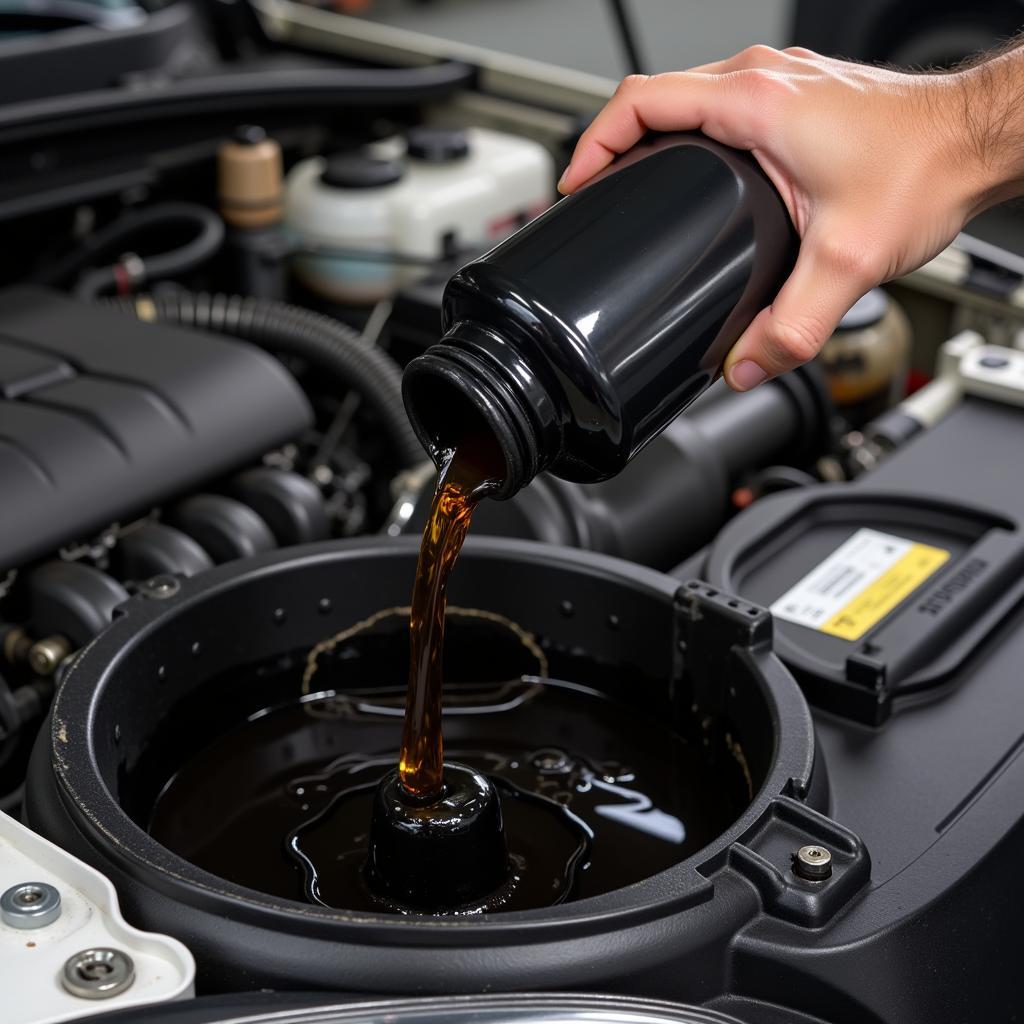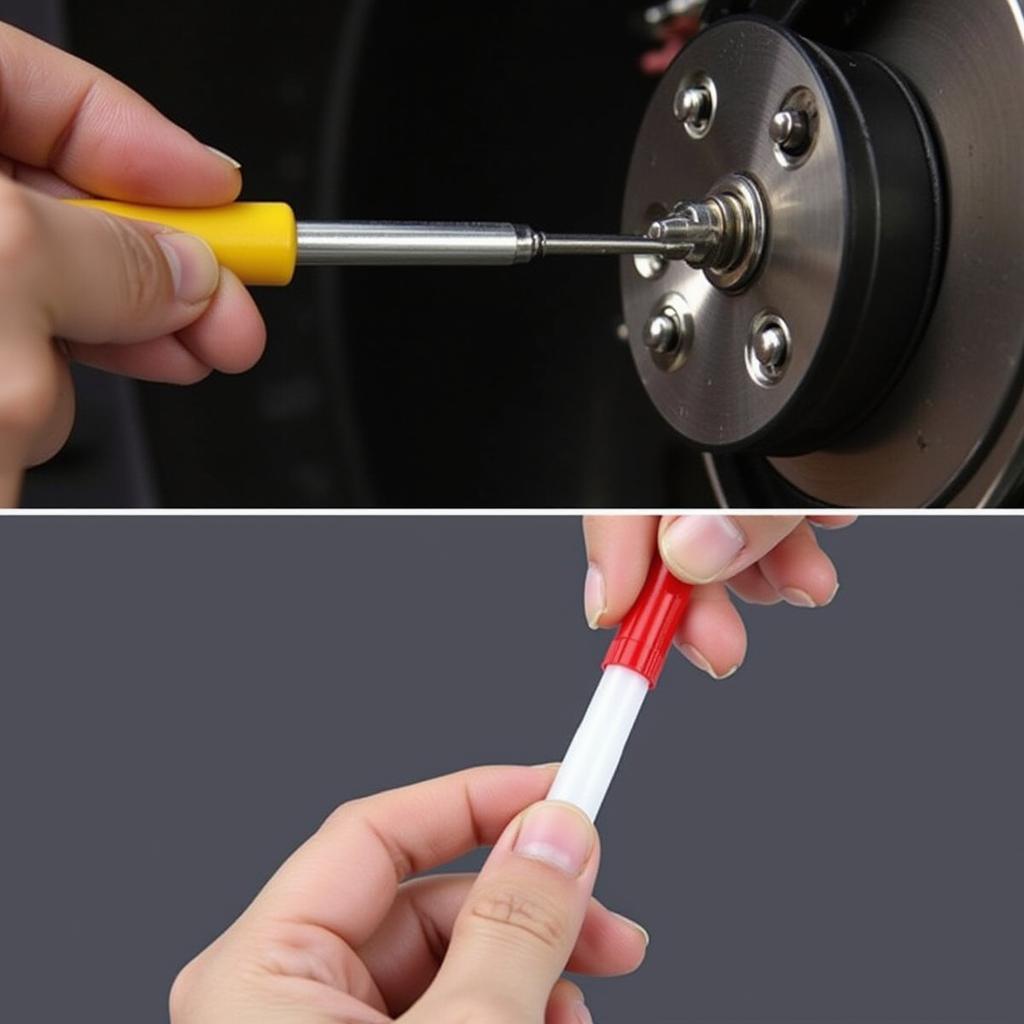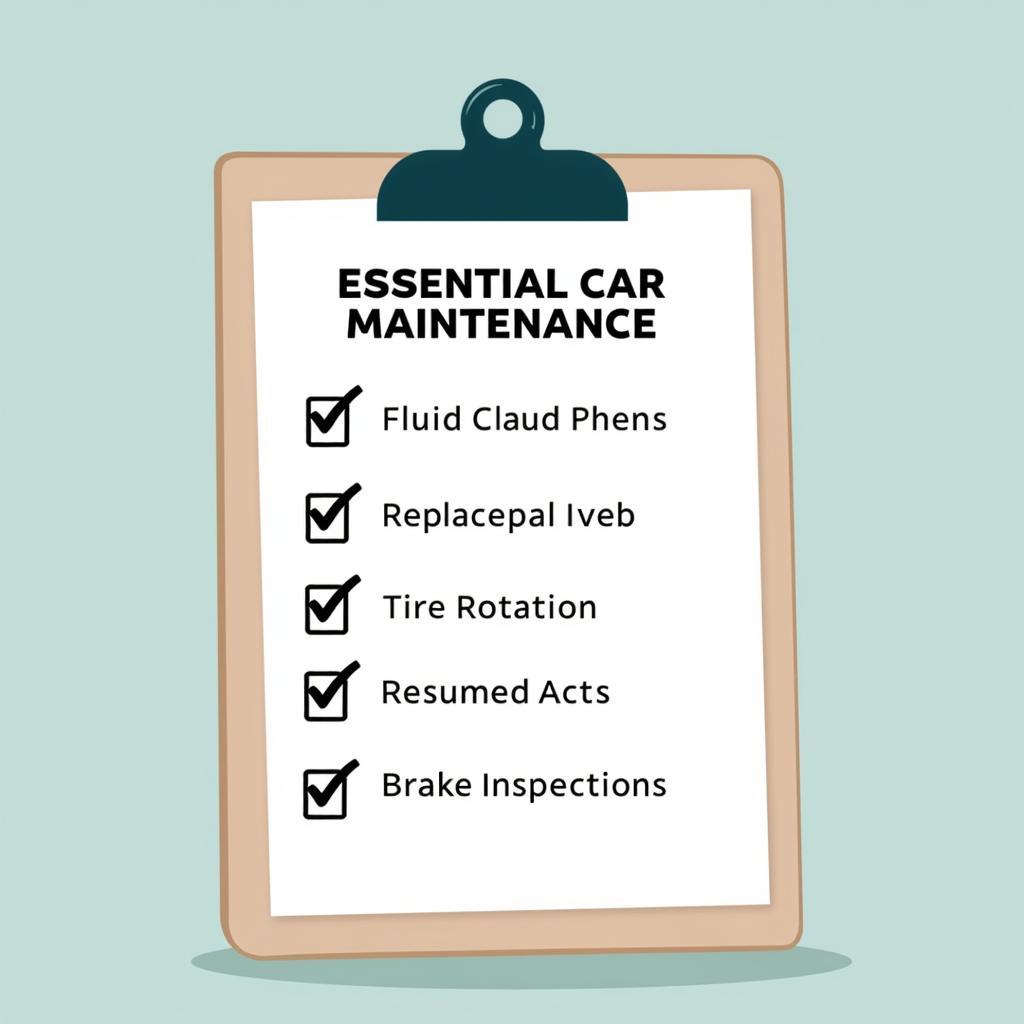Replacing fluids in your car every 3 years may seem like an unnecessary expense, but it’s a vital part of car maintenance that can save you money and headaches in the long run. Think of it like this: would you rather spend a little now on preventative maintenance or a lot later on costly repairs?
Why Fluid Changes Matter
Your car relies on a complex system of fluids to function correctly. These fluids act as lubricants, coolants, and hydraulic mediums, ensuring everything runs smoothly. However, over time, these fluids can degrade, become contaminated, and lose their effectiveness.
The 3-Year Rule: A General Guideline
While the recommended service intervals can vary slightly depending on your car model and driving conditions, the 3-year rule is a good general guideline for most common car fluids.
Fluids That Need Regular Replacement:
- Engine Oil: Engine oil is the lifeblood of your car. It lubricates moving parts, reduces friction, and helps cool the engine. Over time, engine oil breaks down, becoming less effective and potentially causing damage.
 Engine Oil Change
Engine Oil Change
- Transmission Fluid: Transmission fluid ensures the smooth shifting of gears in both automatic and manual transmissions. Like engine oil, it degrades over time and can cause shifting problems, reduced fuel efficiency, and even transmission failure.
- Brake Fluid: Brake fluid is a hydraulic fluid that transmits the force from your foot on the brake pedal to the wheels, stopping your car. Over time, brake fluid absorbs moisture, which can lead to corrosion and reduced braking performance.
 Checking Brake Fluid
Checking Brake Fluid
- Coolant: Coolant, also known as antifreeze, regulates your engine temperature, preventing overheating and freezing. Over time, coolant can become acidic, corroding engine components and leading to costly repairs.
- Power Steering Fluid: This fluid helps you turn the steering wheel with ease. Over time, it can become contaminated, leading to a stiff steering wheel and potential damage to the power steering pump.
Benefits of Regular Fluid Changes
- Increased Vehicle Lifespan: Regular fluid changes help ensure all your car’s systems run smoothly, reducing wear and tear and extending its lifespan.
- Improved Performance: Fresh fluids optimize your car’s performance, from smoother shifting to more responsive braking and improved fuel efficiency.
- Prevent Costly Repairs: Regular maintenance can help identify minor issues before they become major problems, saving you money on expensive repairs down the line.
- Increased Safety: Properly maintained fluids, particularly brake fluid, are crucial for your safety on the road.
 Car Maintenance Checklist
Car Maintenance Checklist
Expert Insight
“Many car owners underestimate the importance of regular fluid changes,” says John Miller, a seasoned automotive engineer with over 20 years of experience. “It’s a relatively inexpensive maintenance task that can have a huge impact on the longevity and performance of your vehicle.”
Beyond the 3-Year Rule:
While the 3-year rule is a good starting point, it’s essential to consult your car’s owner’s manual for specific fluid replacement intervals. Your driving habits, climate, and vehicle age can all influence the frequency of fluid changes.
Conclusion
Replacing fluids every 3 years, or as recommended by your car’s manufacturer, is a crucial aspect of car maintenance that shouldn’t be overlooked. This simple yet often neglected task can significantly impact your vehicle’s performance, longevity, and safety. For any questions or assistance with your car maintenance needs, feel free to contact the experts at AutoTipPro at +1 (641) 206-8880 or visit our office located at 500 N St Mary’s St, San Antonio, TX 78205, United States.
Frequently Asked Questions:
- What happens if I don’t change my car fluids?
Failing to change your car fluids can lead to decreased performance, costly repairs, and even safety hazards. - Can I change my car fluids myself?
While some car owners choose to change their fluids themselves, it’s generally recommended to have it done by a qualified mechanic. - How much does it cost to change car fluids?
The cost of changing car fluids varies depending on your vehicle model and the specific fluids being changed. However, it is a relatively inexpensive maintenance task compared to the cost of major repairs. - How often should I check my car fluid levels?
It’s a good practice to check your car fluid levels at least once a month. - What are the signs that my car needs a fluid change?
Signs that your car might need a fluid change include strange noises, difficulty shifting gears, a burning smell, or fluid leaks.
Remember, investing in regular car maintenance, including fluid changes, is an investment in your vehicle’s health, your wallet, and your safety.





Leave a Reply